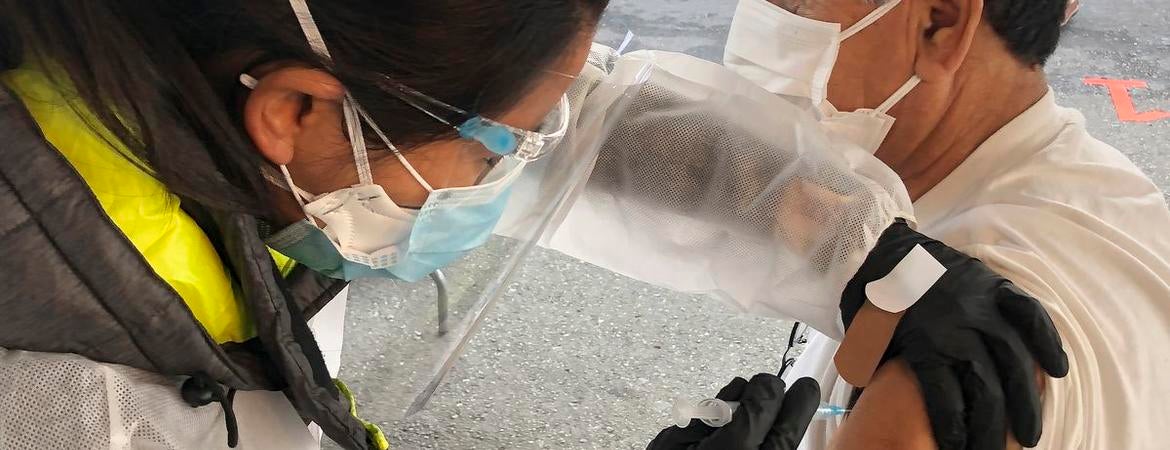Center for Social Innovation

The experience wasn’t ideal, but targeting vulnerable ZIP codes is one way San Francisco and other U.S. cities and counties are trying to ensure they vaccinate people in largely Black, Latino and working-class communities that have borne the brunt of the pandemic. In Dallas, authorities tried to prioritize such ZIP codes, which tended to be communities of color, but backtracked after the state threatened to reduce the city’s vaccine supply.
Nationwide, states are struggling to distribute vaccines equitably even as officials try to define what equity means. They're debating what risk factors gets someone to the head of the line: those in poverty, communities of color, their job or if they have a disability. Others simply want to vaccinate as many people as possible, as soon as possible.
In California, which has prioritized seniors and health care workers, Gov. Gavin Newsom has announced a federal partnership for mass vaccination sites set to open next week in Oakland and east Los Angeles, saying the locations were chosen to target working-class “communities that are often left behind."
California released figures Monday suggesting the lopsided distribution of vaccines to date. Latinos have received 15% of nearly 5 million doses administered — half the rate of white residents, though they make up the bulk of infections and deaths. Black residents have received 2.7% of the doses despite making up 6% of the state's population.
Los Angeles County, the nation's most populous, has delivered at least one dose to just 7% of Black residents 65 and older, while inoculating more than twice that rate of white and Asian seniors.
“Everyone is pretending like this is going to get done in a month or two months," said Karthick Ramakrishnan, founding director of University of California, Riverside’s Center for Social Innovation. “Now is the time to design these systems so those who are most severely impacted by COVID, in terms of cases and deaths, are those who have a fair shot at getting a shot."
Overwhelming demand for vaccines and short supplies can discourage people from seeking the shot, especially in communities where many are suspicious of vaccines.
This article is also published in The Republic, WPXI News, ABC7, and Star Tribune